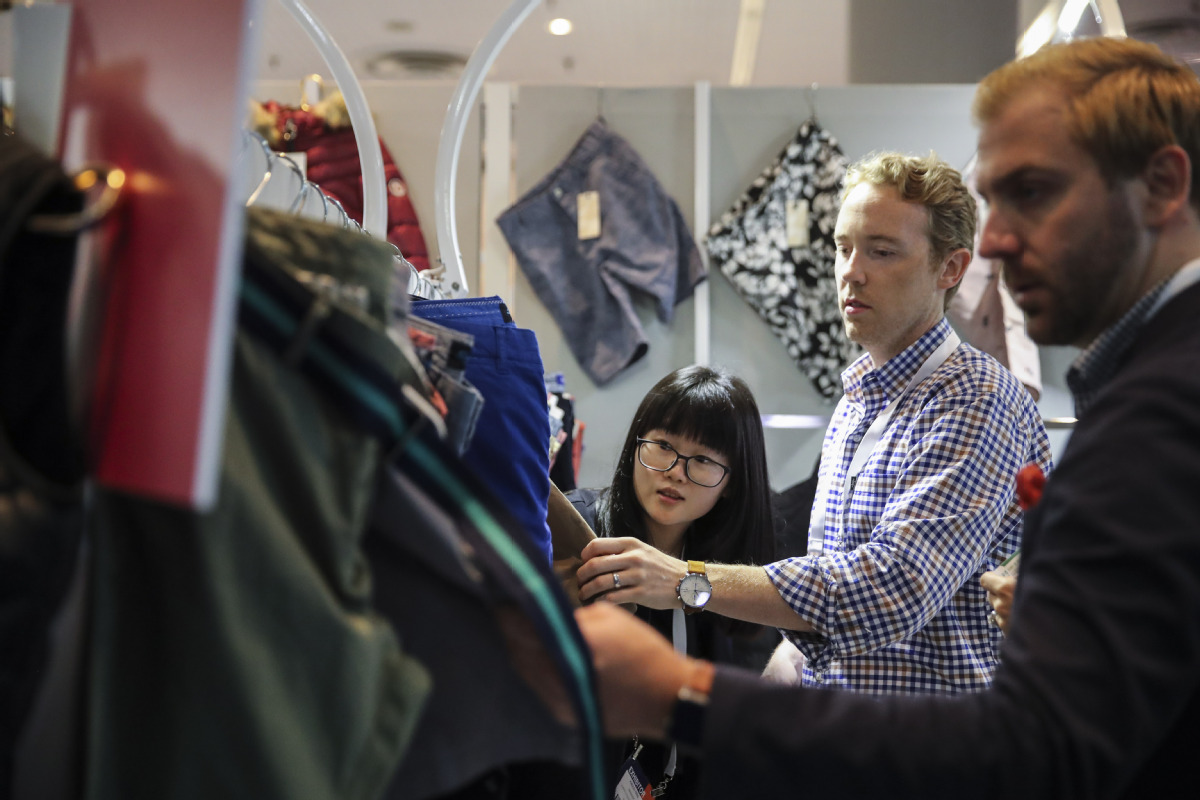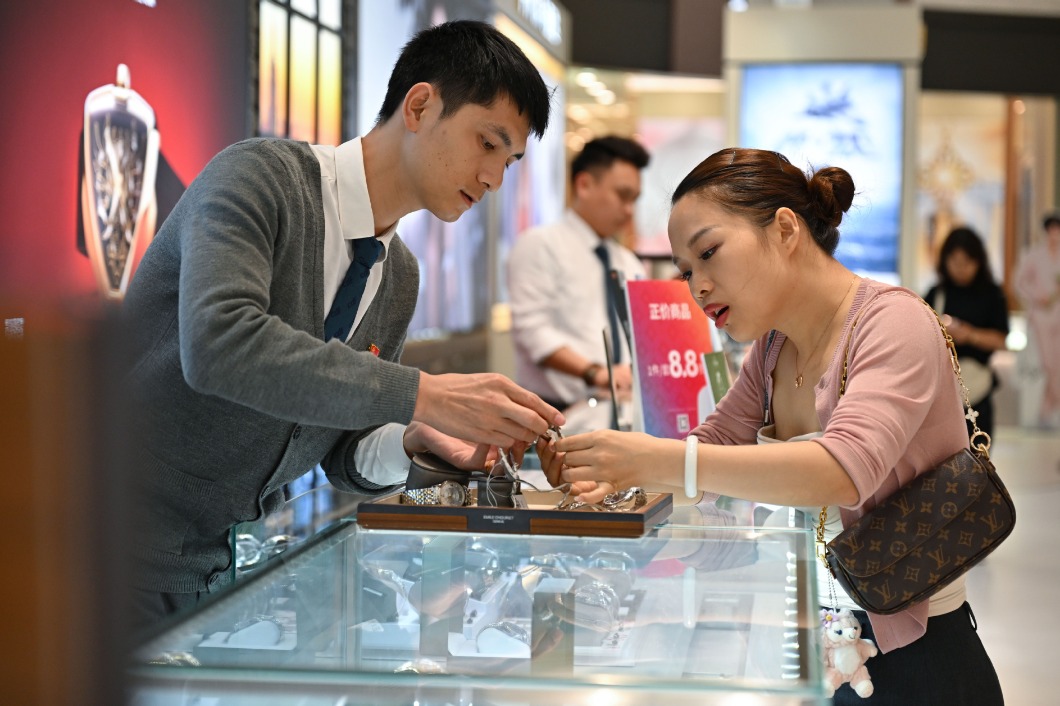Tariff concerns hang over NY trade show


Chinese and US textile and apparel organizations have expressed concern about the escalating trade tensions and their opposition to protectionism during a major trade show in New York on Monday.
Tariff increases are not just a tax on consumers, they will also bring uncertainty to the stable global supply chain for top brands, Xu Yingxin, vice-president of the China National Textile and Apparel Council, said at the show's opening ceremony.
"Neither US consumers, fashion brands, nor Chinese textile and apparel manufacturers will benefit from the conflicts," said Xu, whose council organized the 2018 China Textile and Apparel Trade Show New York with Messe Frankfurt North America. Around 1,000 exhibitors from 17 countries attended the event, with more than 600 from China.
Around 1,000 types of products listed in the textile and apparel category are part of the $200 billion in Chinese imports potentially subject to 10 percent tariffs imposed by the Office of the US Trade Representative. Hearings will be held from Aug 20 to 23 before a final decision will be made at the end of the month.
The products, mainly raw materials such as yarns and fabric, range from silk to cotton, to lace to embroidery, and total around $4 billion, according to Xu.
Julia Hughes, president of the Washington-based United States Fashion Industry Association, which represents brands and retailers, said the organization is opposed to tariffs.
The association's annual survey showed that for the second year in a row, a protectionist trade agenda in the US is the top concern for the US fashion industry. The survey was conducted between April and May of executives from nearly 30 leading fashion brands, retailers, importers and wholesalers, including some of the largest brands and retailers in the country.
Companies are very concerned about broader implications of protectionism for the US economy, consumers and the global economy, Hughes said in an interview at the trade show.
She said one strategy for US companies is to find other sourcing opportunities, but most sourcing executives say there aren't enough viable options to replace China.
Companies are sourcing from many other countries, including Vietnam, Bangladesh, India, Indonesia, as well as countries in the Western Hemisphere.
"There isn't enough sourcing in the world to replace China. And especially not the quality sourcing that American brands and retailers want," she said. "I don't think the solution is we just find an alternative to China. We are doing some analysis on what some other options might be. I have to say we hope it never comes to that."
Hughes said she believes the Trump administration has heard her association's message, so in order to not hurt consumers, the tariffs have been focused on manufacturing inputs rather than clothing, footwear and home textiles.
The association will continue its opposition to consumer products its members import to and sell in the US and are not on the tariff list, Hughes said, adding, "That's our battle."




































